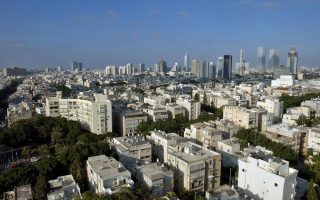Protracted pre-election period

Whether they are held in 2022 or 2023, the prospect of elections has begun to influence social and political attitudes.
Things are already moving inside the government bloc. MPs say they will no longer vote for bills if the relevant ministers continue to ignore them, ministers say they will not tolerate being ignored by the top officials. The smell of elections is in the air and everyone is trying to find a better post to serve their electorate.
In society, its most spoiled elements are stepping up efforts to maintain their privileges: on the one hand, the kind of entrepreneurship that is used to calling political favors “business activity,” and, on the other, elements forming the “backbone” of the economy that survive by shirking taxes and social security contributions, burdening – mainly – salaried workers.
In essence, many feel that the country has entered a protracted pre-election period and are acting accordingly. Especially when it comes to the economy, a major misunderstanding has taken hold: As tackling the Covid-19 crisis worldwide has entailed strong state support for numerous economic sectors, the false impression has been cultivated that sound economic policy means an abundance of benefits and nothing else. That to tackle the health crisis and to stimulate growth, it is enough to distribute money to the taxpayers.
In Greece, this practice has turned into a distribution of money all around – even tax evaders (with the taxpayer paying the rent and utilities of all retail stores) and zombie companies. This way, bank deposits rise, consumption increases, and through it the country’s GDP, along with the illusions that the economy is changing model and trajectory.
One risk is that the economy will lose direction. For example, instead of protecting the weakest through support and retraining, spending money on benefits.
Interestingly, in 2018, the ruling conservatives, who were then in the opposition, sharply criticized the distribution of a so-called “social dividend” by the leftist SYRIZA government to the poorest, saying it would jeopardize the fragile balance of the economy. Back then, lending money was “populism;” now, with a GDP lower than in 2018, lending money is practically virtuous because the economy is “growing” – when, in fact, it is simply struggling to recover to where it was three years ago.
Then, the “social dividend” was a “disaster;” now it is presented as salvation. What’s more, the ministers of finance and economy leave open the possibility of more handouts, not because they agree (quite the contrary), but because they suspect the electoral intentions of the prime minister’s office.
A second risk would be an openly populist slide. Populism is present on several fronts, from the management of so-called national issues (where the government bows to the most backward components of the conservative party, such as on the issue of North Macedonia), to justice (where the political leadership has suspended reforms so as not to become disagreeable to those that might be affected, while adapting the penal code to poll findings) and the spineless management of the pandemic, with inadequate and belated measures.
Despite declarations to the contrary, populism changes clothes and rhetoric, but is still here. It never left the main stage. And if the prolonged pre-election period triggers a more intense slide toward populism with regard to the economy, the cost will be public and heavy for all.





